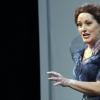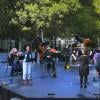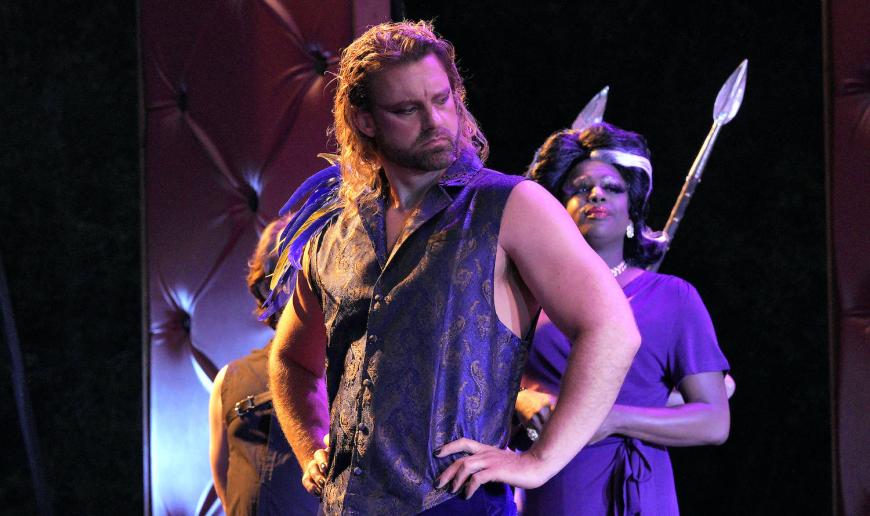
A brutal, predatory, narcissistic, misogynist autocrat; a failed insurrection; a Senate bought, sold, and compliant; a potential opposition hobbled by false loyalty ... Sound familiar? No, not recent Washington, D.C., but 3rd-century Rome, portrayed with satirical glee in West Edge Opera’s production of the opera Eliogabalo, one of the area’s first post-pandemic live-opera productions, in the beautiful outdoor Bruns Amphitheater in Orinda.
The composer, Francesco Cavalli, was the protégé of Claudio Monteverdi, whose Orfeo had launched opera some six decades earlier. Almost as long-lived as his mentor, Cavalli composed more than 40 operas, establishing a formula of fast-moving musical dialogue punctuated by lovely arias and accompanied by a small Baroque orchestra. His recipe started, of course, with romance (this is opera!), adding more than a dash of sex, intrigue, and — Cavalli’s particular signature — a generous larding of grotesque comedy.
But with Eliogabalo, Cavalli’s critique of political corruption was seen as too pointed even for carping, gossipy 17th-century Venice: The producers (or the censors) pulled the opera, replacing it with a milder version of the story (and music by a younger and trendier composer), leaving the score to languish unperformed and essentially unknown until 1999.
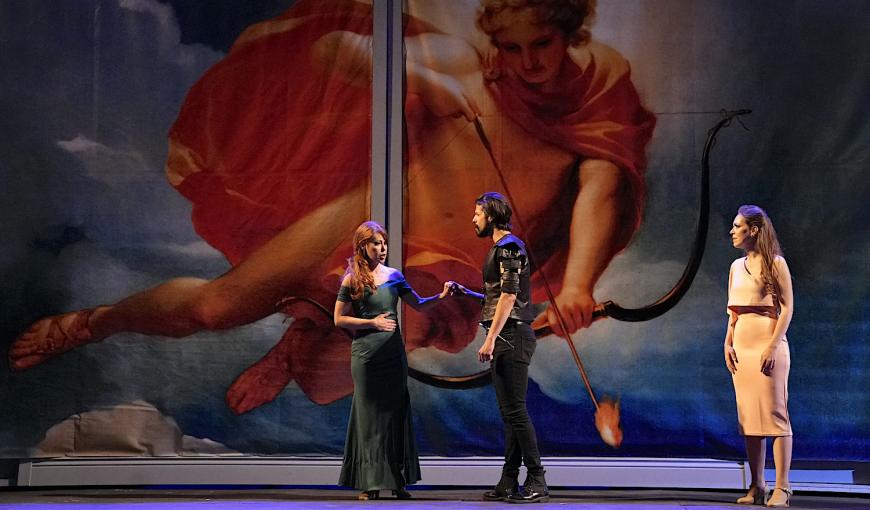
The title character Eliogabalo is a sex-crazed teenage emperor who thinks of himself as above everything, including the law. But he proves oddly inept in his rapacious pursuit of two aristocratic women, Eritea and Gemmira. The emperor’s schemes — date-rape drugs, grope-in-the-dark party games, and brutal sexual assault — motivate his two targets to join forces and expose him to their respective lovers, Giuliano and Alessandro. But the men — loyal to their conspicuously criminal boss (or afraid of him?) — hesitate to do him in, although the women forcefully urge them to act. Finally, the palace guards, disgusted by his morals (or perhaps merely underpaid), attack and kill the emperor. In real life, Eliogabalo died at 18 after only four years of rule.
Cavalli envelops his characters in a continuous flow of music. The implausible dilemmas of these four “good” characters become gripping musical episodes in extended recitatives, supported by the excellent basso continuo section of theorbo (Richard Savino), cello (Farley Pearce), and keyboards (music director Adam Pearl). Especially affecting is the scene when Alessandro, unwilling to kill his emperor in order to save Gemmira from rape, starkly sings, “I give you to him.” The women’s shock at this betrayal is a powerful #MeToo moment.
Cavalli fashioned some fine arias for these questionable characters. Eliogabalo has a splendid moment of hubris near the end, crowing about how he can do anything, enacted with glee by countertenor Randall Scotting. Alessandro has perhaps the only well-known aria, “Misero, cosi va,” (“Wretched goes he”) delivered affectingly by tenor Derek Chester. Soprano Nikki Einfeld as Gemmira was moving in her plangent arias and in a stirring duet of climactic rage and revenge with Eritea (soprano Aura Veruni). Countertenor Matheus Coura as Giuliano had several affecting arias about his conflicts between love and loyalty, courageously singing one of them naked.
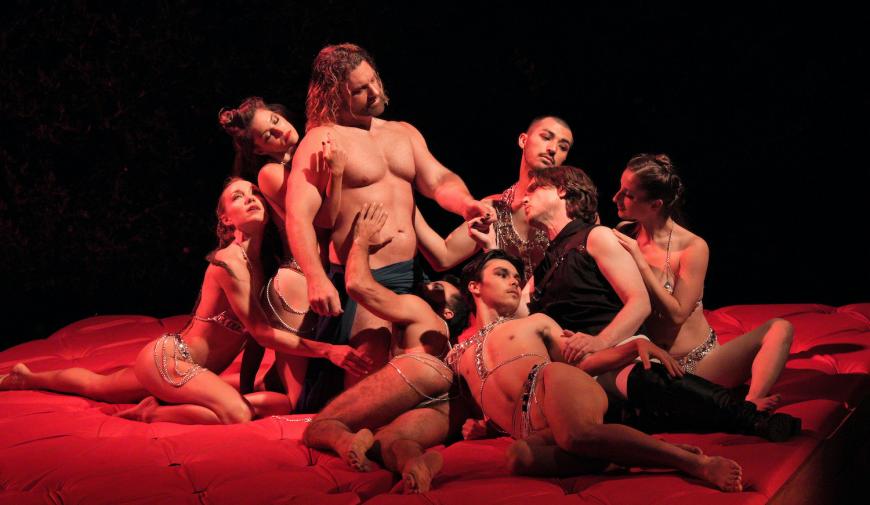
Yes, naked — a serious aria sung in complete frontal nudity, in the chill East Bay night air, no less. In the spirit of West Edge Opera’s well-known edginess, director Mark Streshinsky made it visually obvious that Giuliano has been stripped of his dignity by the emperor’s manipulations. The nudity was consistent with the explicit sex scenes that began the opera and recurred at regular intervals, but here (as elsewhere) it felt overdone and detracted from the beauty and pathos of the aria.
Those are the “upstairs” characters, with their serious music. For the others, who work “downstairs,” the rampant classism of the 17th century dictated a comic treatment and a raunchier style, both musically and dramatically, which West Edge’s production applied liberally. As the emperor’s whore-master Nerbulone — literally, “big whip” — bass-baritone Nathan Stark played every comic opportunity, even breaking the fourth wall to entice some patrons (in English) to join his seraglio.
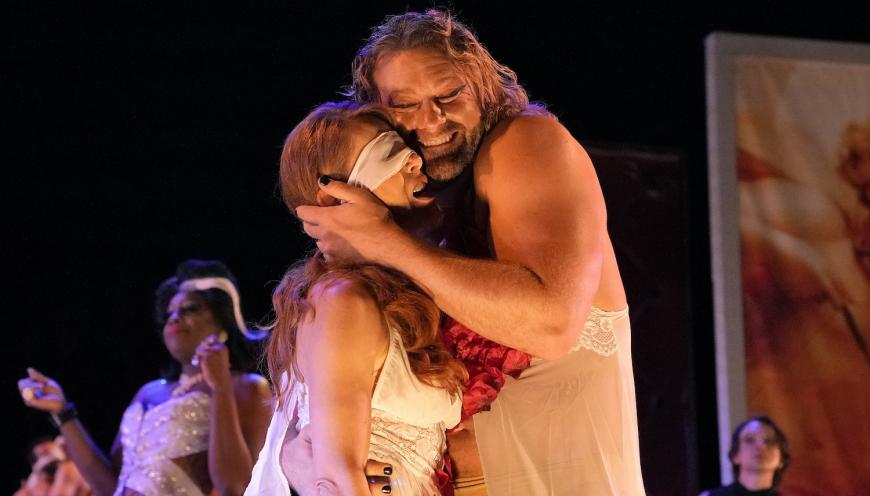
Just as the emperor sells offices of state, Nerbulone sells his sexual services to sex-starved Lenia, Eliogabalo’s aging nurse and chief bawd. Lenia was sung by Bay Area drag persona Effervescence Jackson (otherwise known as Jean-Paul Jones), who slid tellingly back and forth between his good-girl falsetto and his bad-boy baritone.
Low comedy is an integral part of 17th-century theatrical style — think of all the goofy and conniving servants in Shakespeare’s plays. In Cavalli, as in Shakespeare, comedy prods us to remember that the heroic, anguished posturing of the privileged looks absurd from the perspective of those who have to set the table and pay the bribes. But, as with the nudity, this production took it a step too far when expressive arias were upstaged by simultaneous comic antics.
Six dancers, choreographed by Associate Director Benjamin Freedman, gave visual life to Cavalli’s graceful tunes. The six-person orchestra — two violins and a viola in addition to the basso continuo — played stylishly. The exigencies of temperature kept them under the stage of the Bruns, but the sound was nicely miked and balanced with the singers, whose unamplified voices carried even to the top seats in the amphitheater. The supertitles provided a distinctly modern translation of the Italian-language libretto.
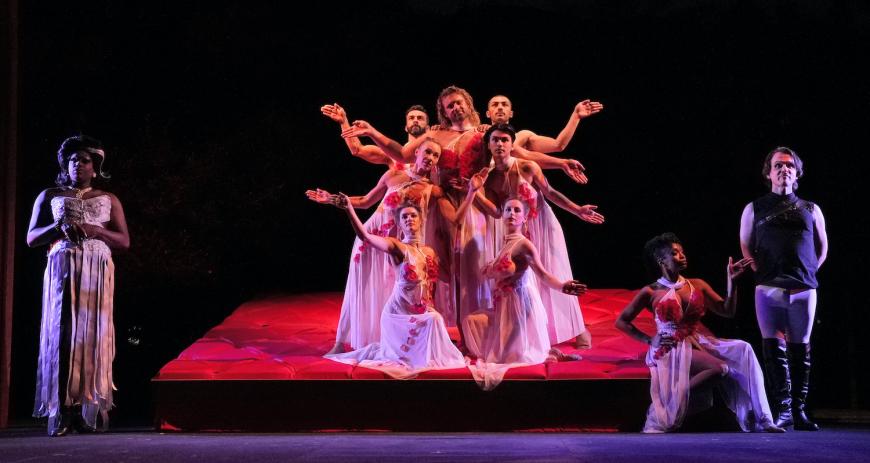
The evening was a long one by pandemic standards (almost three hours); Streshinsky’s pruning of the score could have been more rigorous. But overall, it was a treat to have this quirky opera performed live and with obvious glee in a beautiful and breezily virus-dissipating outdoor space.
The opera wrapped up with a few moments of a supposedly happy ending for the lovers and the state, but left us walking back down to our car through the dark eucalyptus groves with a reminder that corruption and egomania in the halls of power are not limited to our own times.



